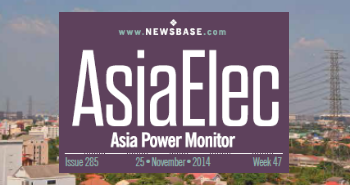AsiaElec: Japan’s bold leap towards fusion power with FAST project launch

Japan has unveiled an ambitious new initiative aimed at achieving commercial fusion power by the end of the 2030s. The FAST (Fusion by Advanced Superconducting Tokamak) project, which will be based in Japan, seeks to address the remaining technical challenges in harnessing fusion energy, potentially revolutionising the global energy landscape as reported by WNN.
At the heart of the FAST project is the use of a tokamak configuration, a plasma confinement method that has become the cornerstone of fusion research. This well-established design, which has been honed over decades of research, employs high-temperature superconducting (HTS) coils, enabling a more compact, cost-effective design and a shorter construction timeline. The project aims to generate between 50 and 100 MW of power, with a fusion burn duration of up to 1,000 seconds, a significant step forward in sustaining fusion reactions for energy production.
Fusion energy, which uses deuterium and tritium as fuel to mimic the sun’s energy-generating processes, holds the promise of nearly limitless and clean power. However, the technical hurdles remain substantial. FAST aims to overcome these obstacles by addressing crucial issues such as energy transport, tritium breeding, and the integration of these advances into a commercial power plant design. Currently, no device in the world is capable of creating the conditions necessary for practical energy extraction from fusion reactions, and the FAST project is poised to change that.
The project’s goal is not to immediately produce net positive power but to demonstrate the viability of fusion power generation. It will focus on bridging the gap between current plasma experiments and the ultimate goal of practical fusion power plants. This will include tackling the challenges of plasma confinement, tritium fuel cycles, and the fusion neutron flux that is vital to sustaining the reactions.
FAST is a collaboration between Japan’s top researchers, as well as international partners from the UK, the USA, and Canada, with industrial support from leading companies such as Mitsubishi Corporation, Marubeni Corporation, and Fujikura Ltd. The project’s design is expected to be finalised by 2025, with a thorough evaluation of technology, funding, and regulatory considerations to follow.
As global interest in fusion energy intensifies, Japan’s FAST project could be a crucial player in making fusion power a reality in the coming decades.
If you'd like to read more about the key events shaping the Asian power sector then please click here for NewsBase's AsiaElec Monitor.


Follow us online